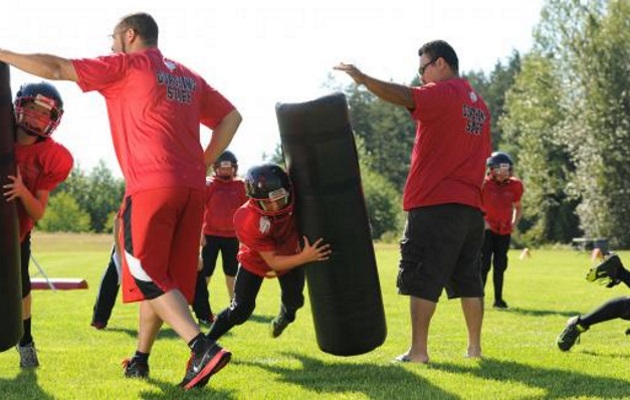Some coaches put more emphasis on games than practices. While paying lip service to the importance of practice, you can tell they are just way more excited about game days.
You may have seen some of these coaches. They come to practice less than fully prepared. There may be some general plan in terms of what to cover at a very high level, but for the most part the approach is disorganized, and the coach is just winging it. A lot of time is spent just scrimmaging – a common crutch to lean on when there’s no plan in place.
Yet come game day, that same coach comes with a written plan with all the Is dotted and Ts crossed. The lineups are set, the substitutions are planned, and the first five series of offensive downs are diagrammed. The same coach who was unprepared for practices during the week is over-prepared for game day.
What’s wrong with this picture?
It’s a recipe for losing – and not just on the scoreboard. It’s easy for a coach to lose the players, and subsequently the parents, when he doesn’t put enough time and energy into planning practices. Players get bored. They complain to parents. In short order, the coach has a big problem.
Great football coaches are detailed practice coaches. In developmental leagues, coaches should worry more about players missing practices than missing games. The No. 1 priority for youth coaches is to make practices meaningful.
Here are seven factors to consider when planning football practices:
- Frequency. There’s a big difference in how many concepts you can cover and the depth depending on if you’re practicing twice per week or five times per week. Plan accordingly.
- Duration. Field availability and players’ ages will factor into the optimal practice duration time. Most coaches know that players are most alert during the first half of practice. Because of this, cover your most important concepts early.
- Intensity. The best coaches balance the need to practice at game speed with the knowledge that, at times, the coach needs to lighten up on the accelerator. “All-out-all-the-time” is hard to sustain and doesn’t foster learning, especially at younger ages.
- Diversity. View part of your coaching responsibility as developing great football players – not just developing a great defensive tackle or a great running back. The position someone plays in fifth grade might be very different from what that same player plays a few years later let alone high school. Develop fundamentals to prepare players for the next level – whatever the position might be.
- Pacing. Children tend to have short attention spans and get bored easily. Keep things moving quickly from one activity to the next. This requires a lot of planning. Hmm, notice a theme here?
- Variation. Change activities often. Spend 10 minutes on one activity and then move to the next. The drills might reinforce the same concept, but because the actions performed are different, it keeps things fresh. Many of the best coaches use progressive coaching techniques. By focusing on a singular concept, e.g. tackling, a coach can keep it interesting by moving from big group training to individual instruction to small group training.
- Planning fun. Football is fun in and of itself. However, drill repetition and hard work on the practice field can make Jack a dull boy. Plan some fun activities at every practice that you know the team will enjoy. You want players chomping at the bit to come back to the next practice. To accomplish that, you need to make sure each practice has plenty of fun built in.
Read the original article from USA Football by Michael O’Halloran
Michael O’Halloran is founder of Sports Feel Good Stories.com. The best football quotes, football slogans and sayings, football award certificate templates, football offseason workouts and football practice plans are featured on the site. Follow SportsFeelGoodStories on Twitter at @SportsFeelGood and on Facebook.

